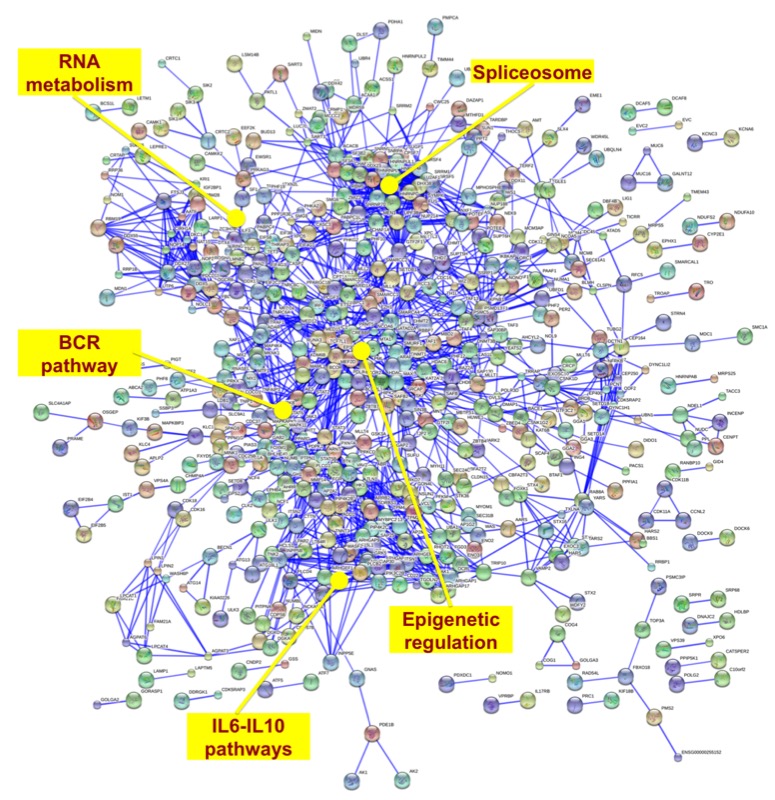
Ribavirin, a drug that has been approved by the Food and Drug Administration (FDA) to treat hepatitis C, as well as some viral respiratory infections and viral hemorrhagic fevers, has shown promising activity against some types of lymphoma. There is a growing movement to repurpose older drugs that might have mechanisms of action that could benefit cancer patients.
Based on preclinical work performed in the laboratory of Dr. Leandro Cerchietti, the Weill Cornell Medicine and NewYork-Presbyterian Lymphoma Program is planning a clinical trial examining the oral antiviral drug ribavirin in patients with two non-Hodgkin lymphoma subtypes, slow growing follicular lymphoma and mantle cell lymphoma. This clinical trial will be led by principal investigator Dr. Sarah Rutherford.
Previously, physicians and scientists in the Weill Cornell Medicine Lymphoma Program have demonstrated that ribavirin may be able to inhibit lymphoma cell growth. Dr. Cerchietti’s laboratory research has shown that the eukaryotic translation initiation factor 4E (eiF4E) is blocked by ribavirin in B-cell lymphoma cell lines, as well as in patient-derived xenograft (PDX) models, which more closely resemble the way cancer behaves in the human body. Blocking eiF4E ultimately leads to decreases in key proteins (MYC, BCL2, and BCL6) which are crucial for lymphoma cells’ survival (FIGURE).
Additionally, Dr. Rutherford conducted a retrospective review of patients with lymphoma who underwent stem cell transplants at New-YorkPresbyterian Hospital/Weill Cornell Medical Center. Patients who were treated with ribavirin for viral infections just before or after their stem cell transplant had better lymphoma-related outcomes compared to what was expected based on their disease risk profiles.
This clinical trial, run by Dr. Rutherford and Dr. Cerchietti, will enroll patients with follicular lymphoma and mantle cell lymphoma, and they will receive 3-6 months of oral ribavirin. Using a blood test, Dr. Rutherford and Dr. Cerchietti will monitor for the presence of a marker of lymphoma in the blood to confirm that ribavirin has the intended anti-lymphoma effect.
“We are excited about opening this clinical trial and aim to conduct additional trials in the future that combine ribavirin with other drugs,” said Dr. Rutherford. “Our goal is to ultimately develop a well-tolerated, targeted oral regimen to control lymphomas.”
This preclinical research is supported by a Translational Research Program (TRP) from the Leukemia and Lymphoma Society (LLS) awarded to Dr. Cerchietti.

